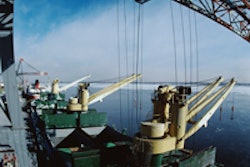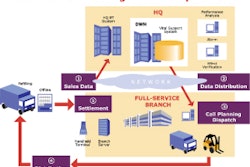Foster City, CA — September 13, 2007 — Arena Solutions, a provider of on-demand product lifecycle management (PLM) software for manufacturers of all sizes, today announced results from a recent survey it conducted in conjunction with Symphony Consulting on the challenges of manufacturing outsourcing and the best practices for addressing them.
The research revealed that while 85 percent of the manufacturers surveyed outsource part or all of their manufacturing operations, nearly two-thirds of them risk the associated savings because they lack adequate control and processes. These manufacturers still use manual processes such as phone calls, faxes and e-mails with spreadsheets. The high occurrence of errors that often result from these methods can lead to hard-dollar costs that eat up the very savings companies are trying to achieve by outsourcing manufacturing in the first place. In fact, over 52 percent of the companies in the study suffered from hard dollar losses due to communication and documentation errors, including rework, scrapped inventory, excess materials and product recalls.
"While outsourcing offers significant financial merits and enables companies to focus on their core strengths, it is not free of challenges," said Bijan Dastmalchi, co-founder and senior consultant at Symphony Consulting Inc., a manufacturing outsourcing and supply chain consulting firm. "Outsourcing manufacturing without the proper infrastructure and control is a recipe for failure."
The study also found a majority of companies that outsourced manufacturing faced a number of significant challenges when working with their contact manufacturers (CMs), including coordinating new product introductions, managing and communicating product changes, and communicating information across organizational and geographic boundaries. Perception among these manufacturers is that more effective collaboration with their CMs is critically important and will address these problems. For example, nearly eight out of 10 believe closer involvement and tighter control and processes with their CMs would reduce new product delays.
"Shepherding a product from design through manufacturing is difficult, but introducing outsourcing into the process pushes it to a significantly higher level of complexity. Despite the cost savings associated with outsourcing, the management task becomes even more difficult and carries greater risk," said Dastmalchi. "For manufacturers who are using manual, linear, error-prone and complicated processes for managing their product record, I recommend they think strategically about the kind of infrastructure they need for support in managing the challenges that come with outsourcing, such as new product introduction, compliance and change management, for example.”
Only 32 percent of respondents currently use a product lifecycle management (PLM) system as a shared "information infrastructure" to manage product information and share it with their CMs. These companies that have a PLM system report experiencing fewer outsourcing problems compared to companies that rely on manual processes for communication regarding new product introduction, change order management and environmental compliance management issues. Three out of four of the respondents who currently use manual processes recognize improvements are needed, and are taking steps to improve their systems.
The research showed even greater advantages came from using on-demand PLM software (also known as software as a service or SaaS) versus traditional client/server systems. On-demand PLM software requires no special hardware or IT staff, is easier to deploy than client/server software and is accessible from anywhere in the world through an ordinary Web browser and Internet connection.
"With manufacturing dispersed around the globe, companies need a common infrastructure for sharing product information with their CMs to reduce hard-dollar incidents that can result from common outsourcing issues. Hard-dollar incidents can take their toll on manufacturers, especially those in the mid-market where margins are often tight and reducing time and costs is critical, and consume expected savings from outsourcing," said Michael Topolovac, CEO of Arena Solutions. "Underscoring the magnitude of the risk is the common belief that the cost of product changes increases ten-fold each time errors move into the next development cycle, from design through manufacturing. Having a PLM system — particularly one that is easy to use and deploy — that helps manufacturers reduce the incidents of late-stage changes is crucial."
More than 800 individuals, predominantly senior executives and subject matter experts from a wide variety of discrete manufacturing industries including high-tech electronics, medical devices, consumer products, aerospace and defense, automotive and industrial segments, responded to the survey. Over 70 percent of them work for companies that generate less than $250 million in annual revenues and operate with fewer than 1,000 employees. Participants included professionals from engineering (41 percent), manufacturing and procurement (36 percent), and other functional roles (23 percent).









